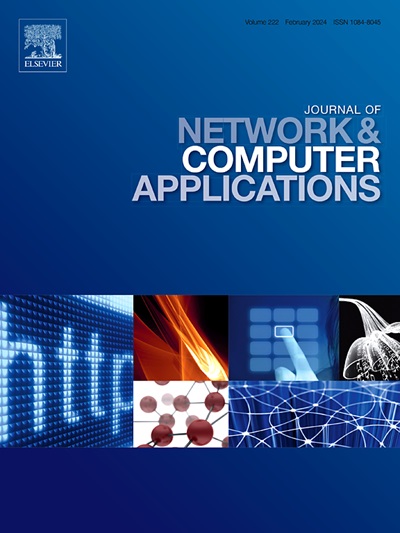ParallelC-Store: A committee structure-based reliable parallel storage mechanism for permissioned blockchain sharding
IF 7.7
2区 计算机科学
Q1 COMPUTER SCIENCE, HARDWARE & ARCHITECTURE
引用次数: 0
Abstract
The storage performance of blockchain suffers from serious limitations due to its employed full-replication strategy, especially in large-scale network services such as Jointcloud computing and big data processing. To address this challenge, some storage partitioning mechanisms integrating Erasure Coding with Byzantine Fault Tolerant (BFT) consensus protocol are developed, like BFT-Store and PartitionChain. Whilst promising, there still exist three major issues impacting system effectiveness, scalability and stability. Firstly, the high computational complexity of coding consumes substantial computing time. Secondly, the signature schemes for verifying the integrity and correctness of encoded data lead to massive transmitted data over the network. Thirdly, each process necessitates the participation of all nodes, causing extended time overhead and interruption of system operation. To optimize the above three aspects, this paper presents a parallel storage partitioning mechanism called ParallelC-Store, where the nodes are divided into Storage Committees (SCs) based on the existing BFT sharding protocol. Firstly, the SCs engage in parallel implementation of data encoding and decoding of distinct original blocks in a synchronous manner. Hence, the computational complexity/throughput per block of encoding and decoding can be decreased/increased by about / and / times respectively. Secondly, Merkle Tree and Bloom Filter are employed to generate the verification proof of encoded data, which avoids heavy communication burdens. Thirdly, all processes for different scenarios can be implemented exclusively within a specific SC when a node joins/quits the system or a single crashed node needs repair. The experimental results demonstrate that the proposed mechanism generally outperforms the comparison mechanisms in terms of storage consumption, coding efficiency and system scalability.
ParallelC-Store:基于委员会结构的可靠并行存储机制,用于允许的区块链分片
区块链由于采用全复制策略,存储性能受到严重限制,特别是在Jointcloud计算和大数据处理等大规模网络业务中。为了解决这一挑战,开发了一些将Erasure Coding与拜占庭容错(BFT)共识协议集成在一起的存储分区机制,如BFT- store和PartitionChain。虽然前景看好,但影响系统有效性、可扩展性和稳定性的主要问题仍然存在。首先,编码的高计算复杂度消耗了大量的计算时间。其次,用于验证编码数据完整性和正确性的签名方案导致大量数据在网络上传输。第三,每个过程都需要所有节点的参与,造成时间开销的延长和系统运行的中断。为了优化以上三个方面,本文提出了一种并行存储分区机制ParallelC-Store,该机制基于现有的BFT分片协议将节点划分为g个存储委员会(storage Committees, sc)。首先,g个sc以同步方式并行实现g个不同原始块的数据编码和解码。因此,每个编码和解码块的计算复杂度/吞吐量可以分别降低/增加约g/g2和g2/g3倍。其次,采用Merkle Tree和Bloom Filter对编码数据进行验证证明,避免了繁重的通信负担;第三,当节点加入/退出系统或单个崩溃节点需要修复时,不同场景的所有进程都可以在特定的SC内独占实现。实验结果表明,该机制在存储消耗、编码效率和系统可扩展性等方面均优于比较机制。
本文章由计算机程序翻译,如有差异,请以英文原文为准。
求助全文
约1分钟内获得全文
求助全文
来源期刊

Journal of Network and Computer Applications
工程技术-计算机:跨学科应用
CiteScore
21.50
自引率
3.40%
发文量
142
审稿时长
37 days
期刊介绍:
The Journal of Network and Computer Applications welcomes research contributions, surveys, and notes in all areas relating to computer networks and applications thereof. Sample topics include new design techniques, interesting or novel applications, components or standards; computer networks with tools such as WWW; emerging standards for internet protocols; Wireless networks; Mobile Computing; emerging computing models such as cloud computing, grid computing; applications of networked systems for remote collaboration and telemedicine, etc. The journal is abstracted and indexed in Scopus, Engineering Index, Web of Science, Science Citation Index Expanded and INSPEC.
 求助内容:
求助内容: 应助结果提醒方式:
应助结果提醒方式:


